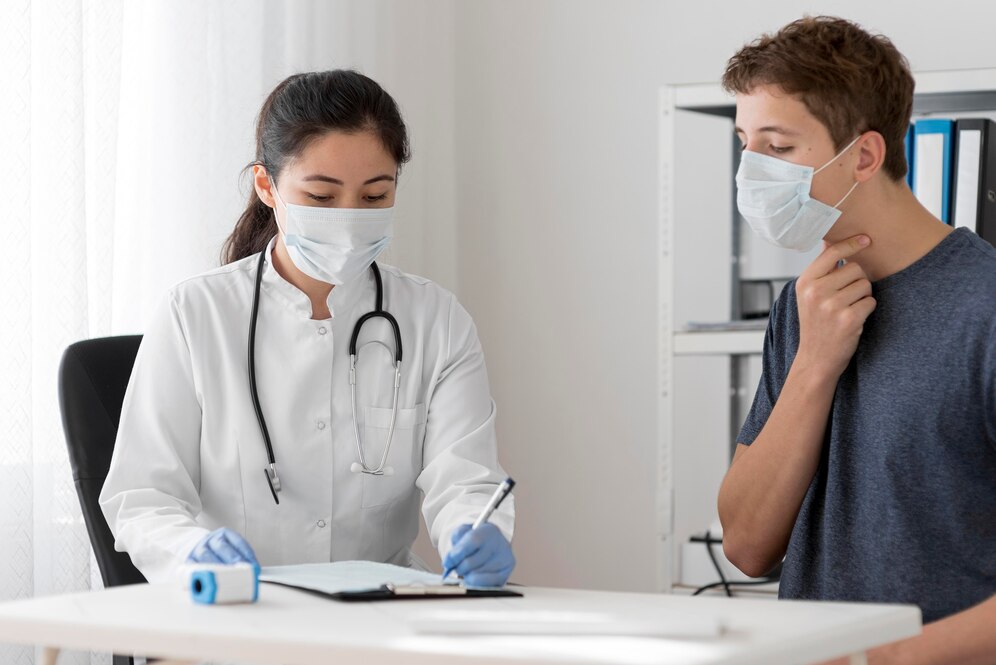Primary Care and Allergies: Comprehensive Management for Better Health
Allergies are a widespread health concern, affecting millions of people with symptoms ranging from mild discomfort to life-threatening reactions. As the first point of contact for most patients, primary care physicians (PCPs) play a crucial role in the diagnosis, management, and prevention of allergic diseases—including seasonal allergies, food allergies, and allergic rhinitis. Their involvement improves patient outcomes and quality of life while reducing healthcare costs and unnecessary specialist referrals.

The Role of Primary Care in Allergy Management
Primary care physicians are often the first healthcare professionals to evaluate and manage patients with allergy symptoms. Their responsibilities include:
- Initial Assessment: Taking a comprehensive history, including symptom patterns, triggers, family history, and environmental exposures.
- Diagnosis: Utilizing clinical history, physical examination, and, when appropriate, allergy testing to identify offending allergens. For allergic rhinitis, clinical history is the most common diagnostic tool, while food allergies may require elimination diets and challenge testing.
- Treatment Planning: Creating individualized management plans that may include allergen avoidance, pharmacotherapy, and patient education.
- Referral: Identifying cases that require specialist input, such as severe or complex allergies, or when immunotherapy is considered.
Common Allergies Managed in Primary Care
- Seasonal Allergies (Allergic Rhinitis): Managed with antihistamines (especially second-generation types), nasal corticosteroids, decongestants, and non-drug treatments like saline douching and allergen avoidance.
- Food Allergies: Early diagnosis and management are critical, especially in children. PCPs may recommend elimination diets, prescribe emergency kits (e.g., epinephrine auto-injectors), and educate families on allergen avoidance.
- Other Allergies: Including asthma, atopic dermatitis, and insect or drug allergies, which require tailored management strategies.
Treatment Options in Primary Care
- Allergen Avoidance: Guidance on minimizing exposure, such as staying indoors during high pollen counts or using air purifiers.
- Medications:
- Antihistamines (especially second-generation, like loratadine) for mild to moderate symptoms.
- Decongestants and nasal corticosteroids for nasal congestion and inflammation.
- Emergency medications (e.g., epinephrine) for severe allergic reactions.
- Immunotherapy: For persistent or severe allergies, PCPs may initiate or refer for allergy shots or sublingual tablets, which gradually desensitize the immune system.
- Lifestyle & Nutritional Interventions: Recommendations may include exclusive breastfeeding for 4–6 months and early introduction of certain foods (like eggs and peanuts) under supervision to help prevent food allergies in high-risk infants.
Prevention and Education
PCPs are at the forefront of allergy prevention, particularly in children. Strategies include:
- Educating parents about early food introduction and breastfeeding benefits.
- Advising on environmental control and allergen avoidance.
- Monitoring at-risk patients for early signs of allergic disease.
Ongoing Monitoring and Follow-Up
Allergy management is an ongoing process. Regular follow-up allows PCPs to monitor treatment effectiveness, adjust medications, and provide continued education and support.
Conclusion
Primary care physicians are essential in the fight against allergies, from early identification and diagnosis to ongoing management and prevention. Their holistic approach ensures patients receive timely, effective care, reducing complications and improving quality of life.
FAQs
1. How does a primary care physician diagnose allergies?
Through a detailed history, physical examination, and, when needed, allergy testing to identify specific triggers.
2. What treatments can my primary care doctor offer for allergies?
They may recommend allergen avoidance, prescribe antihistamines, decongestants, nasal sprays, or refer for immunotherapy if needed.
3. Can primary care physicians manage food allergies in children?
Yes, they play a key role in early diagnosis, elimination diets, emergency kit prescriptions, and family education.
4. When should I see a specialist for my allergies?
If allergies are severe, complex, or unresponsive to standard treatments, your primary care doctor may refer you to an allergist.
5. What can I do to prevent allergies in my child?
Exclusive breastfeeding for 4–6 months, early introduction of certain foods (like eggs and peanuts) under medical supervision, and avoiding unnecessary allergen avoidance diets during pregnancy or lactation are recommended for prevention in high-risk infants.
We help you breathe easier with comprehensive allergy diagnosis, treatment, and prevention. Visit us at https://specialtycareclinics.com/ or call us at (972) 865 4454 to schedule an appointment. Walk-ins & new appointments available.
